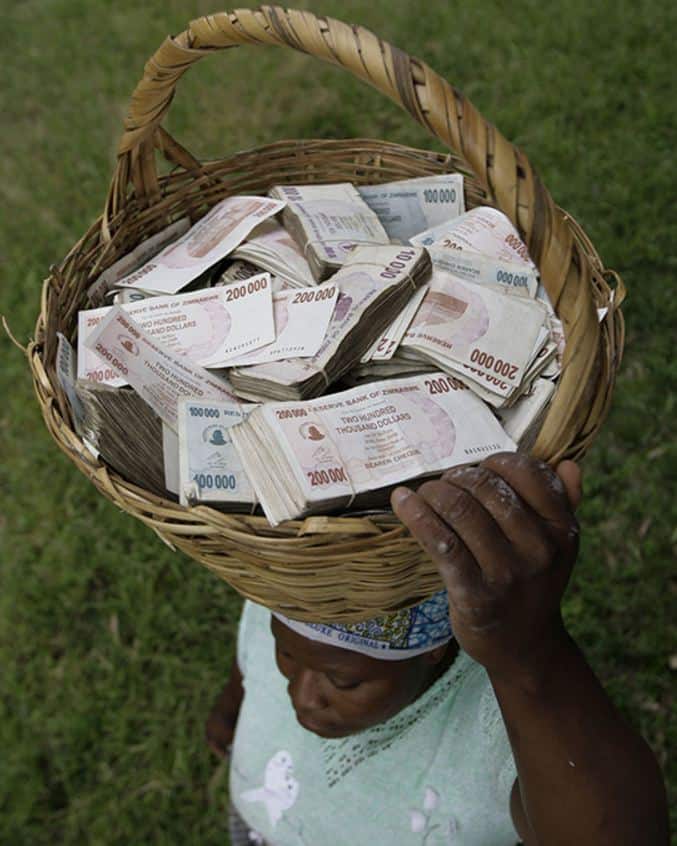President Mnangagwa’s government has technically de-dollarized the economy by reintroducing local currency bank accounts, which will be traded in electronic transfers and bond notes only, and piled more taxes on the transacting public.
Reserve Bank of Zimbabwe (RBZ) governor John Mangudya, in a monetary policy statement presented yesterday, directed banks to create nostro accounts for foreign currency transactions (nostro FCAs), which will run separately from existing bank accounts, now limited to RTGS (real time gross settlement) transactions and bond notes only.
The measures, which will technically de-dollarise the economy and reduce existing FCAs to local currency accounts, take effect on October 15.
Mangudya said the Africa Export-Import Bank (Afreximbank) has agreed to provide a $500 million guarantee to the new nostro FCAs, which have been created to cater for exporters and other foreign currency earners.
It means non-foreign currency earners, who wish to open nostro FCAs, would have to fully fund their accounts with foreign currency.
It also means government has indirectly admitted that bond notes and RTGS balances cannot trade at par with the US dollar due to a growing mismatch between cash dollars and bond note/RTGS balances.
“With immediate effect, all banks are directed to effectively operationalise the ring-fencing policy on nostro foreign currency accounts by separating FCAs into two categories, namely nostro FCAs and RTGS FCAs,” Mangudya said.
“Accordingly, all banks are directed to use their know-your-client principles to comply with this directive to separate the accounts without requiring their clients to complete any other documentation other than for new bank accounts.”
Zimbabwe is reeling under a harsh currency crisis, characterised by a persistent shortage of cash and foreign currency, which has given rise to an active parallel market where foreign currency, bond notes, RTGS balances and mobile money are traded.
RBZ announced the currency measures, purportedly to strengthen the multi-currency regime, currently in circulation, under a broader framework of 13 measures introduced to stabilise prices; boost the amount of foreign currency in circulation and support the productive sectors of the economy.
The catalogue of interim measures include the provision of lines of credit for strategic imports; use of letters of credit for high-value foreign transactions and the introduction of a statutory reserve requirement to mop up excess liquidity.
Foreign truckers will now be required to purchase fuel in foreign currency. Non Zimbabwean will also be asked to pay in hard currency for services.
news day













